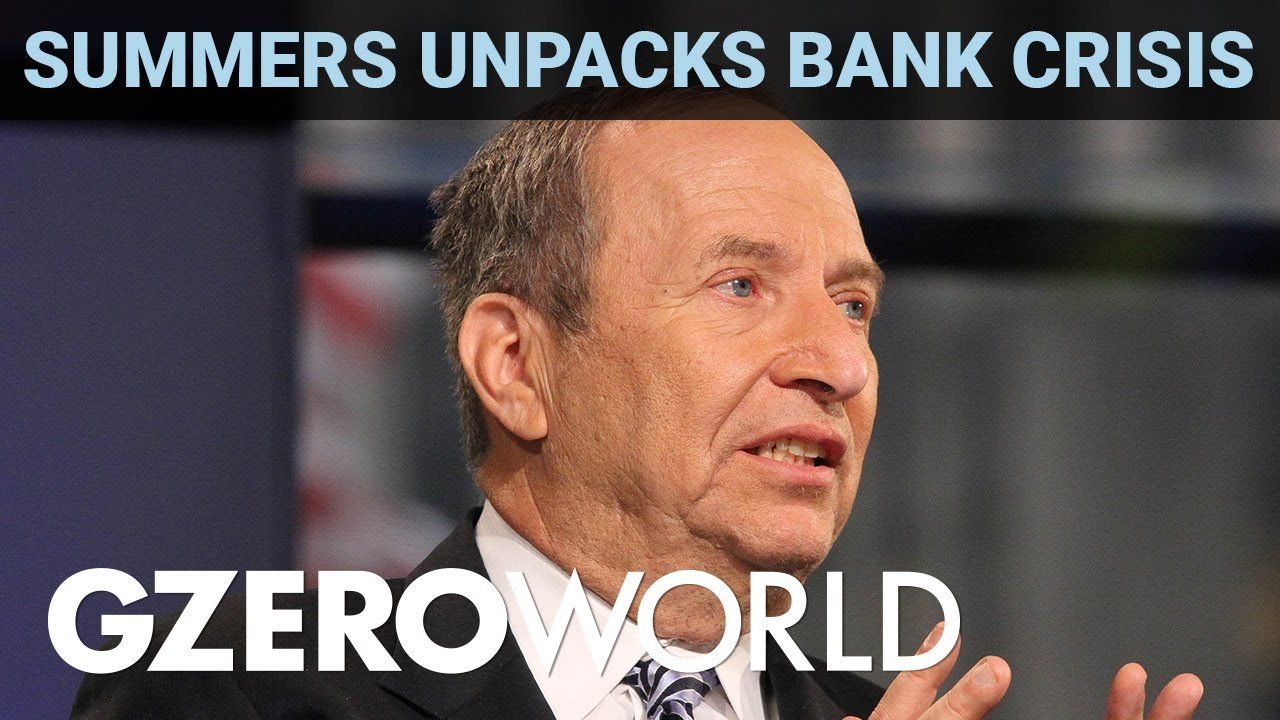GZERO World with Ian Bremmer
The banking crisis, AI & Ukraine: Larry Summers weighs in

The banking crisis, AI & Ukraine: Larry Summers weighs in | GZERO World with Ian Bremmer

The recent spate of bank failures has caused significant turbulence in markets and left investors jittery across the globe, from Silicon Valley to Switzerland. But is this a sign of a systemic banking crisis or of a more fundamental flaw in capitalism? In an interview with Ian Bremmer on GZERO World, former US Treasury Secretary Larry Summers provides an in-depth analysis of the situation.
Summers is critical of the management of Silicon Valley Bank and the federal government's intervention, which failed to prevent the banking turmoil. He also expresses concerns about the real estate sector, particularly when it comes to office buildings, and corporate lending to mid-sized businesses.
The conversation also delves into the impact of artificial intelligence on the labor market, with Summers cautioning that AI will "bring about significant changes" that will “profoundly alter traditional hierarchies and ways of thinking,” which may threaten influential groups. It’s even probable, he tells Bremmer, that we’ll see “restrictionist and protectionist policies that limit our ability to benefit from these technologies or slow down [their development].”
Summers also proposes a contentious solution to rebuild Ukraine: seizing frozen Russian assets.
The Supreme Court has struck down President Trump’s use of the national emergency clause to impose sweeping tariffs around the world. In this Quick Take, Ian Bremmer explains why this ruling was predictable and why it’s a major setback for Trump’s trade strategy.
Think you know what's going on around the world? Here's your chance to prove it.
2.5 million: The population of Gabon who can no longer get onto certain social media platforms, like YouTube and TikTok, after the government suspended access on Tuesday.